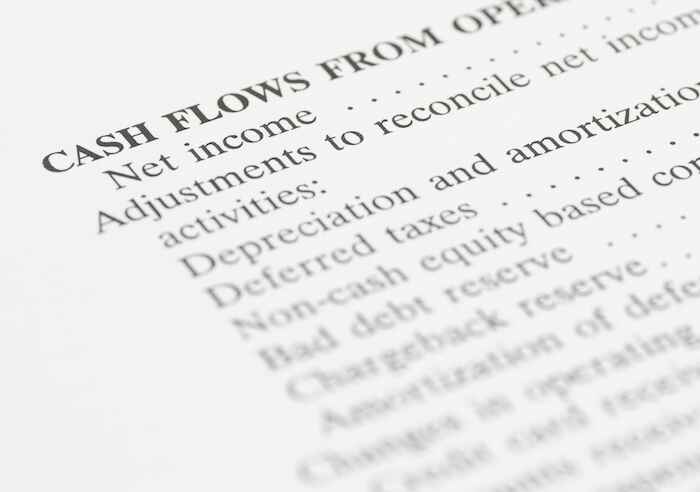Now’s the Time for This Ideal Recovery Play
Andy Snyder|June 3, 2021

This may be the ultimate recovery play.
It saves on taxes. It offers a shot at good income. And, thanks to Uncle Sam, a very big catalyst is on the way.
Long-time readers know we like real estate. We just bought more of it. It’s an ideal long-term investment, especially with interest rates at record lows.
But owning a portfolio of rental homes or raw land isn’t for everyone. The average investor faces stiff headwinds. Liquidity is low. Transfer costs are high. And, right now, knowing the market is more important than ever.
That’s why real estate investment trusts – aka REITs – should be part of every investor’s plan.
As we explore all the ways to negotiate rising taxes and a surging cost of living, these unique investments have an important role to play. They offer a shot at strong, tax-advantaged income.
And right now is the time to get in.
Easy Money
Most folks have yet to classify REITs as a recovery play. Their attention has instead gone to restaurants, movie theaters, airlines and the like. That’s fine. But there’s more to the story.
Before we get there, it’s important to know that there are many types of REITs. Some own office buildings. Others own malls. A few own medical spaces. And some own rental houses.
A REIT’s status as a recovery play hinges on which type of asset it owns.
Invitation Homes (INVH), for example, is a behemoth renter of single-family homes. It’s an ideal way to get into the home-rental business… without the hassle of buying, maintaining and renting a home yourself.
This REIT is a rather rare bird. As you may know, most single-family houses are rented by mom and pops. Typically they own just one or maybe two rental homes.
Chances are, after all their costs are added up, they’re not making a whole lot.
Of the 16.5 million rental units in the U.S., 16.2 million are owned by individuals. Institutions and REITs own the other 300,000.
Invitation Homes owns 80,000 of those. That gives the company massive scale.
And don’t forget… something big is coming at the end of this month. The feds are lifting the moratorium on evictions. And while having billions of dollars’ worth of unpaid rent is certainly not good news, the end of the free ride actually is… at least for some REITs.
That’s because, at the same time that landlords are gearing up to either get their money or find new renters, legislators in the hardest-hit states are considering writing some very big checks.
The rumors are still fresh, but it appears that states like California, Oregon and New York are all working on plans to help pay any rent that’s owed.
That’s big.
And it’s an idea that’s not yet fully priced into shares of single-family REITs.
Getting Bigger
The end of COVID-19 restrictions and a once-again-free economy will also be good for multifamily REITs like Equity Residential (EQR).
It owns nearly 80,000 apartment units across the country – spanning locations like Boston, New York, Seattle, Denver and Southern California.
As home prices soar, the upside to apartment living becomes clearer. Many folks don’t have a choice, and plenty of others are waiting out a frothy market by renting before they buy.
Many regions are already reporting record growth in rental rates, and every one of the nation’s 60 largest markets is reporting hastening rental growth.
On average, rentals are growing at a 4.1% annual clip.
That’s good news for residential REIT owners.
Of course, there are many other types of REITs. To own a slice of medical offices, grab shares of CareTrust (CTRE) or Sabra Health Care (SBRA).
To own office buildings, look at Boston Properties (BXP) or Hudson Pacific (HPP).
To own malls, grab a stake in Macerich (MAC) or Simon Property Group (SPG).
But know this about all of them… it’s their taxation status that makes them truly unique and gives them major bonus points when the government is eager to shake down anybody with a few extra pennies.
REITs do not pay corporate income taxes.
Unlike a typical blue chip, which may pay hundreds of millions – if not billions – of dollars in taxes, REIT profits flow directly to shareholders, who then typically pay ordinary income tax rates on their dividends.
There’s no double taxation.
That’s important now, and it will become a lot more important as the talk about raising corporate rates becomes reality.
As the prices of many stocks “adjust” to the new tax rates, REITs will stand strong.
That makes now an ideal time to get in.
They’re not getting any cheaper.

Andy Snyder
Andy Snyder is an American author, investor and serial entrepreneur. He cut his teeth at an esteemed financial firm with nearly $100 billion in assets under management. Andy and his ideas have been featured on Fox News, on countless radio stations, and in numerous print and online outlets. He’s been a keynote speaker and panelist at events all over the world, from four-star ballrooms to Capitol hearing rooms.





